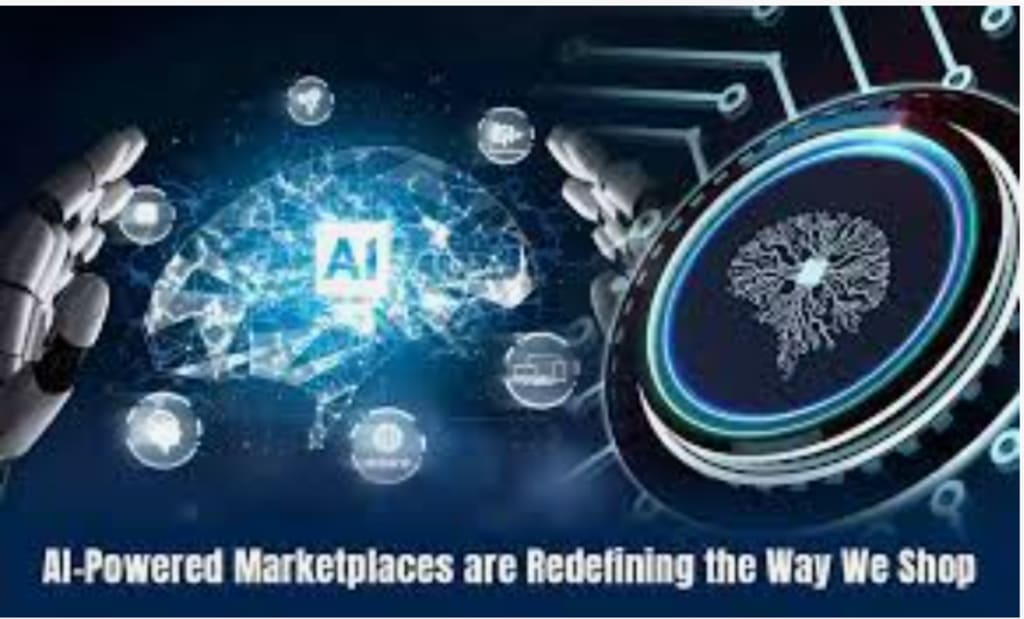The Retail Revolution: How AI is Redefining the Shopping Experience
Navigating the Aisle of Innovation in the Retail Industry

In the age of digital disruption, no industry has been left untouched by the transformative power of technology. One sector that is experiencing this revolution in a particularly pronounced manner is retail. Artificial intelligence (AI) is not just changing the game; it's rewriting the rules, ushering in a new era of retail marked by personalization, efficiency, and unprecedented customer engagement. This article explores how AI is transforming the retail experience, taking us on a tour of the digital storefronts of the future.
The Dawn of Personalized Shopping
The first, and perhaps most significant, impact of AI in retail is the advent of personalized shopping. Gone are the days when everyone received the same advertisements and product recommendations. Today, AI algorithms analyze customer behavior, browsing history, and purchase patterns to create a unique shopping experience tailored to each individual's preferences.
Consider the case of online giant Amazon. Its recommendation engine, powered by AI, accounts for 35% of the company's sales. When you browse for a book on Amazon, the platform suggests other titles based on what customers with similar tastes have purchased. This approach not only enhances the customer experience but also drives additional sales, creating a win-win situation for both shoppers and retailers.
Streamlining Supply Chain and Inventory Management
AI is also revolutionizing the supply chain and inventory management. With AI's predictive capabilities, businesses can forecast demand more accurately, optimizing their inventory levels and reducing waste. Supermarket chains, for example, use AI to predict the quantity of perishable items they need to stock, minimizing spoilage and ensuring they meet customer demand.
Moreover, AI-powered automation is enhancing efficiency in warehouse operations. Robots equipped with AI technology can pick, pack, and sort items faster and more accurately than humans, reducing errors and improving order fulfillment speed. Amazon's robot-filled warehouses are a testament to the potential of AI in streamlining retail operations.
Enhancing Customer Service with Chatbots
The rise of AI has also brought with it the emergence of chatbots, providing a new avenue for customer service. These AI-powered virtual assistants can handle a wide range of customer queries, from tracking orders to answering product-related questions. They are available round the clock, providing instant responses and freeing up human customer service representatives to deal with more complex issues. This results in improved customer satisfaction and reduced operational costs.
The application of AI in retail is vast and varied. From personalizing the shopping experience to streamlining operations, AI is reshaping the retail landscape, making it more customer-centric, efficient, and innovative. However, this is just the beginning. As AI technology continues to advance, its impact on retail will only grow, offering exciting opportunities and challenges for retailers and customers alike.
In the next section, we will explore the future of AI in retail and delve into some of the ethical considerations surrounding its use. Stay tuned as we navigate the exciting aisle of innovation in the retail industry.
The Future of AI in Retail
As we look ahead, the potential for AI in the retail sector is nothing short of transformative. It's not just about streamlining operations or providing personalized shopping experiences – AI is poised to redefine the entire customer journey.
For instance, smart mirrors are being integrated into physical stores. These mirrors, equipped with AI and augmented reality (AR), allow customers to virtually try on different outfits, change colors or styles, and even get recommendations based on their body type and preferences. This blend of digital and physical retail, often referred to as "phygital", promises to deliver an immersive shopping experience that bridges the gap between online and offline worlds.
Similarly, autonomous checkout systems are gaining traction. By using AI-powered cameras and sensors, these systems can track what items customers pick up, automatically charging them as they leave the store, eliminating the need for traditional checkout lines. Amazon Go is a prime example of this technology in action.
Another exciting prospect is the use of AI in predictive retail. By analyzing consumer trends, social media chatter, and other data sources, AI can help retailers predict the next big product or fashion trend. This capability can give retailers a significant edge in the highly competitive retail market, enabling them to anticipate customer needs and adjust their strategies accordingly.
Ethical Considerations
However, the integration of AI in retail is not without its challenges. As with any technology that collects and analyzes personal data, there are significant privacy and ethical considerations.
For AI to deliver personalized experiences, it needs data – a lot of it. While many customers appreciate the convenience of personalized recommendations, others are uncomfortable with the amount of personal information companies can gather. Retailers must strike a balance, ensuring they use customer data to improve the shopping experience without violating privacy.
Moreover, as AI systems become more prevalent, there is a risk of job displacement. While AI can handle repetitive tasks efficiently, the transition could lead to job losses in the short term. Retailers will need to consider how to manage this transition, potentially by retraining employees to take on new roles that AI can't fill.
Conclusion
The retail industry is on the cusp of an AI-driven revolution. From personalized shopping experiences to efficient supply chains, AI is set to redefine the retail landscape. However, it's not a one-size-fits-all solution. Retailers must navigate the opportunities and challenges that come with AI integration carefully.
It's an exciting time for the retail industry. As we stand on the brink of this AI-powered frontier, one thing is clear: the future of retail is not just about selling products but creating unique and personalized experiences that customers love. In this brave new world, AI is not just a tool; it's a game-changer, turning the retail experience as we know it on its head.
About the Creator
Geoffrey Muriuki
Geoff is a tech enthusiast with interest in the transformative powers of Artificial Intelligence and blockchain. He strives to demystify the world of AI and blockchain. He believes in the potential of technology to shape a better future.





Comments
There are no comments for this story
Be the first to respond and start the conversation.